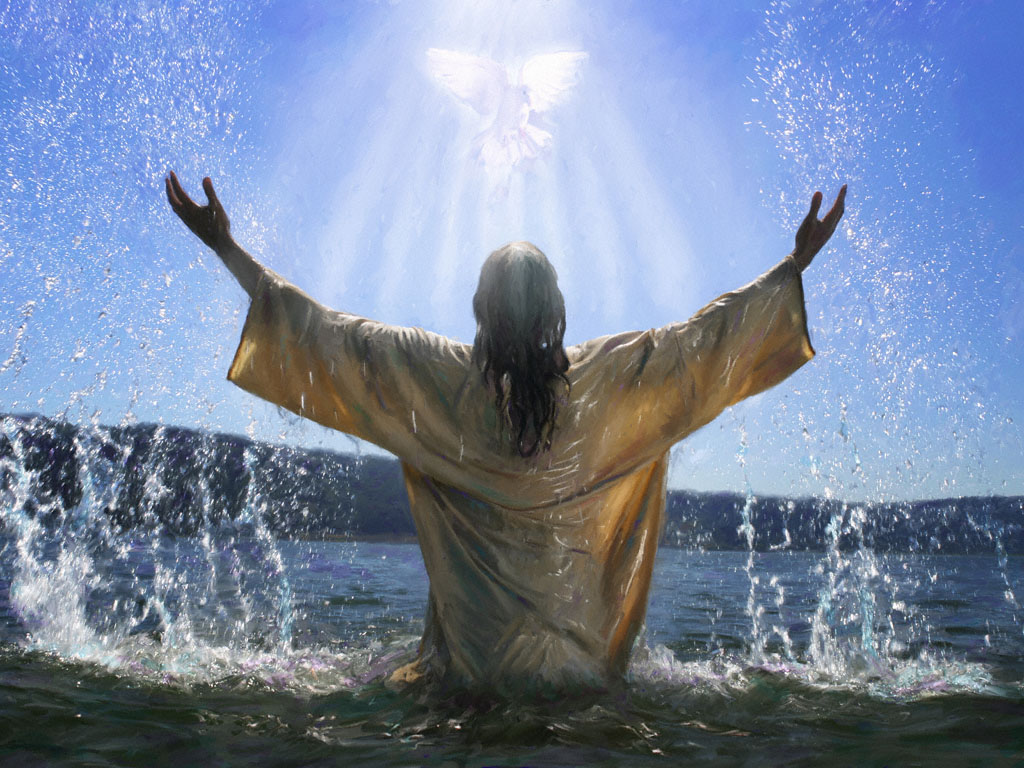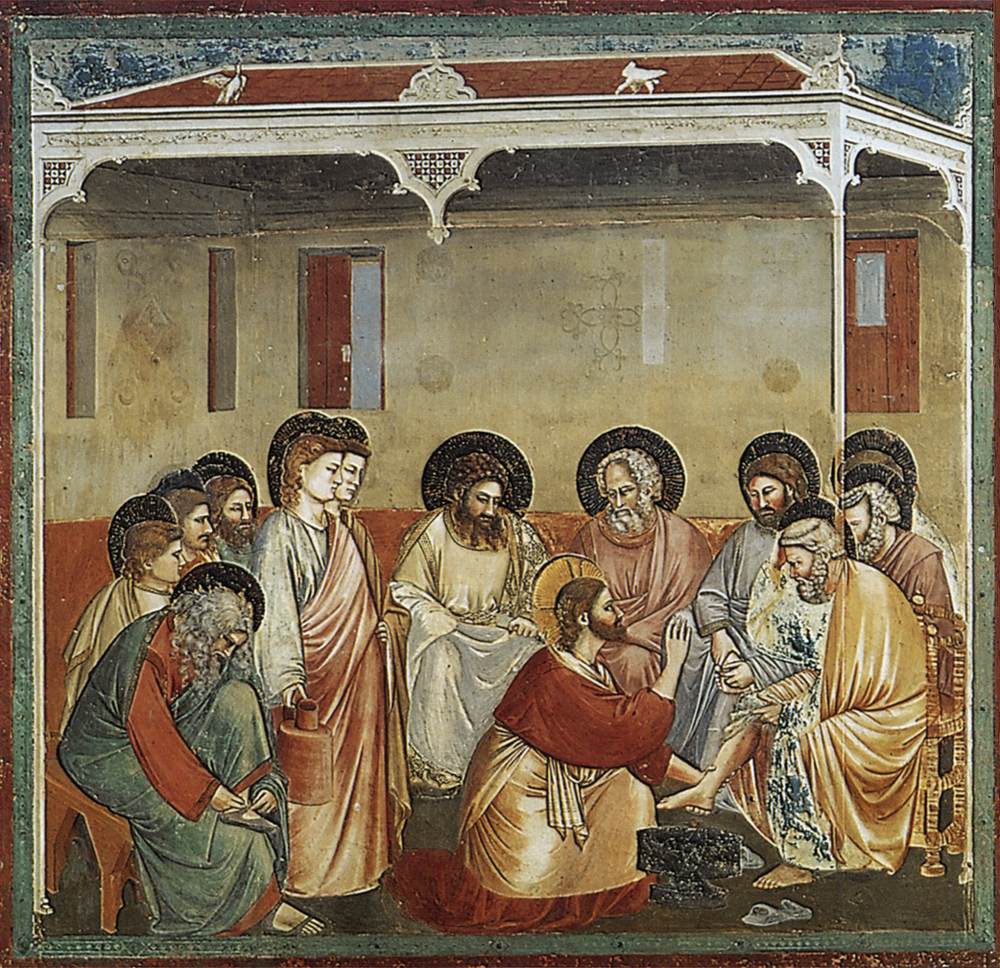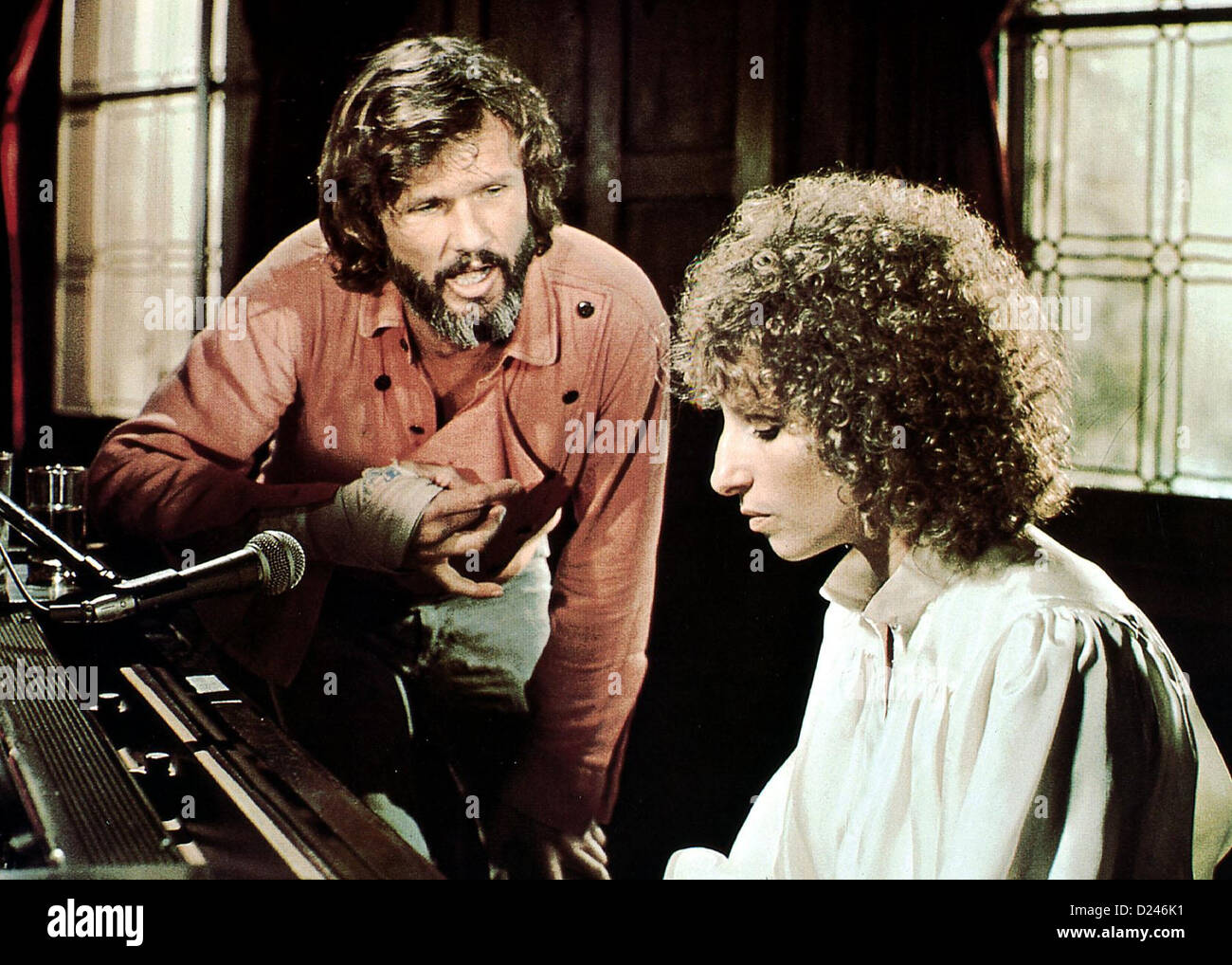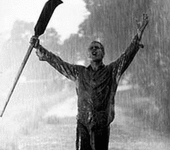|
Replies: 11
| visibility 849
|
Top TigerNet [32158]
TigerPulse: 100%
55
|
Religious Pron: Preparing the Way: 2 of 3

4
Apr 10, 2025, 2:18 PM
|
|



Last time we talked a little bit about Pharisees and Sadducees, and how, even within the same religion, people can interpret things in very different ways. In that case it was resurrection.

This time, it’s John the Baptist.
Predictably, the scripture-rigid Sadducees saw John as just another locust-and-honey-eating guy out in the woods. Moses didn’t talk about him, so how important could he be? But the Pharisees saw him as much, much more. And they had their reasons.
In the 1st Century AD, John found himself at the very center of two very influential Pharisee ideas beyond resurrection; the newer idea of the ‘End of the World,’ and the older idea of a ‘National Messiah.’ To both of these, just like with resurrection, the Sadducees again cried:

Again, there are no messiahs in the Torah, and so no interest from the Sadducees. But as I said, the Pharisees, just like everyone else who has ever lived, had reasons for what they believed. They didn’t just make stuff up. And Pharisee thought seems to have hinged on these prophecies from scripture:
1.Regarding Resurrection:
Isaiah 26:19
“Your dead will live; their bodies will rise.”
Daniel 12:2
“Multitudes who sleep in the dust of the earth will awake: some to everlasting life, others to shame and everlasting contempt.”
2.Regarding the End of the World:
Isaiah 65:17
“See, I will create new heavens and a new earth.”
Daniel 7:18
“But the holy people…will receive the kingdom and will possess it forever”
And, as odd as it might seem, from the Sadducee hero himself, Moses.
3.Regarding a messiah
Deut 18:15
“The LORD your God will raise up for you a prophet like me [Moses] from among you, from your fellow Israelites. You must listen to him.”
Deut 18:15 specifically says a prophet, but not a messiah. Does that matter? Is a messiah by default also a prophet? Who knows, but you can see the dilemma.
There’s little doubt that the debate over the meaning, and context, of those verses raged on between the Sadducees and the more Pharisees for their entire history, and right up to the Tiger Net Religion board today.
The point is that there was something behind what all those folks thought. And John the Baptist’s thoughts, and his cultural context, are in those very verses. There were more verses they leaned on too, and maybe some from scriptures we no longer even have.
And in John’s case, there was a 4th issue open to interpretation beyond resurrection, the End, and messiahs…there was baptism.
:max_bytes(150000):strip_icc()/Baptism-GettyImages-77866343-568d534c3df78ccc155f1e89.jpg)
To me, even with as much attention as John the Baptist gets in the Bible, I still think his influence is terribly underrated. So much so that that I’m not sure he just prepared the way for Jesus’s mission; I think he might have LED the way for Jesus’s thoughts.
Sadly, we just don’t have that much information on Jesus’s youth. We know what a few people thought about him; his parents, John’s parents, the Magi, and Herod. And we know that as early as 12, Jesus himself thought that he was the Son of God:
Luke 2:49
“Didn’t you know I had to be in my Father’s house?”
But that’s about it. And if you take JUST the information we have in the Bible at face value, trying to keep preconceptions to a minimum, a curious picture develops.
For instance, there is no evidence in the Bible that Jesus had any ministry, or taught anybody, or healed anyone, or claimed to have any mission, or even claimed to be the Messiah, until AFTER he met John the Baptist. There were almost twenty years of silence after Jesus’s childhood visit to the Temple. That’s why I think John is so important.
Jesus did seem to think he was the Son of God, from Luke 2:49. But even that doesn’t necessarily mean he thought he was divine, yet. My church taught me that Jesus’s divinity didn’t happen till his baptism. What if the only thing that young Jesus thought was that he was the Son of God, until he met John? And what if it was John who helped opened his eyes to his full destiny?
In short, if Jesus is the Way, what if “preparing the Way” doesn’t mean preparing a process, it means preparing a person, Jesus himself.

If all Jesus had to do was die to fulfill the Law, Herod could have handled that in his youth. So there must have been more to the plan. Enter John. John the Baptist appears in all 4 Gospels, and also in the writings of Josephus, so that right there tells you he was very well known in his time. And his lasting impact is of course enormous. Just ask any Baptist.

For those following along at home, you can find John the Baptist’s story in:
Matt Chapters: 3, 11, 14, 17
Mark Chapters: 1, 6
Luke Chapters: 1, 3, 7, 9
John Chapters: 1, 3, 5, 10
Acts Chapters: 1, 13, 18, 19
That’s a LOT of verbiage in the New Testament for anyone not named Jesus. Still, we’ll probably never really know John’s full impact in his own day. But once we dig in a bit, I think you’ll see what I mean by “preparing.”
John is interesting to me because he’s a bridge between ideas. He’s not fully Pharisee, but he’s not fully Sadducee, either. He’s rooted in the old, but his message, and his ministry, represent a curious new mix of the two main competing factions in Israel at the time.

Think a moment about what John was doing. This will take a little bit of tight parsing, and getting into the mind of an ancient Israelite.
John wasn’t forgiving people of their sins by baptizing them. The ancient Israelites thought only God could forgive sins, and only through sacrifice. For John, and the Jews of his day, baptism was about preparation. John was preparing people to be forgiven by purifying (ie, bathing) them. That’s slightly different than how some Christians, including Paul, see baptism today. And it’s a very tight parse.
Acts 22:16 — “Get up, be baptized and wash your sins away, calling on his name.”
Purification is exactly what the Sadducee priests were doing in the Temple, to themselves. Cleanliness was, and still is, next to godliness, for a lot of folks:
Muslims washing before prayer at a mosque.

Hindus washing their feet before entering the Temple.

Jews purifying themselves.

Jesus, washing his disciple’s feet.

John wasn’t blaspheming ,or discarding, or threatening the sacred Temple rituals of the Sadducees with his baptisms. To the contrary, he was adopting them, and imitating them, in the wilderness. What the priests were doing ‘First Class’ in the Temple, John was doing ‘economy’ out in the wild.
In effect, John was democratizing the Jewish idea of preparation of forgiveness. Basically saying, “You don’t need a well-dressed Priest to purify you in preparation for forgiveness; I can do the very same thing. John the Baptist was bringing high-class city ritual right down to simple country folk.

A second parse is that baptism isn’t quite the same as anointing. You get wet either way, but for the Jews, baptism (usually with water) was for purifying, and anointing (usually with oil) was for empowering, or blessing, or marking as significant; like as a king, or a messiah.

John’s dad was a Sadducee priest (Luke 3), so he full-well had to know all the Temple practices and procedures. But he rejected the Temple, and the Sadducees, and went to the wilderness, just like Jesus later would (for 40 days). And John had a message for the Pharisees as well as the Sadducees…clean up your act. The End is near.
Matt 3:7:
“But when [John] saw many of the Pharisees and Sadducees coming to where he was baptizing, he said to them: “You brood of vipers! Who warned you to flee from the coming wrath? Produce fruit in keeping with repentance.”
The first thing we learn about Jesus’s adult life, after growing up in Nazareth, is that he goes to visit John.
Mark 1:9
“At that time Jesus came from Nazareth in Galilee and was baptized by John in the Jordan.”
And Jesus took note of John’s sermons. Here Jesus is, right after John’s beheading, and right before his own crucifixion, sounding very much like John himself.
Matt 23:29-333
“Woe to you, teachers of the law and Pharisees, you hypocrites!... “You snakes! You brood of vipers! How will you escape being condemned to hell?”

So as to baptism, the elite Temple priests were purified before they approached God, and thanks to John, country Jews were purified before they approached God, too. That’s kinda revolutionary. And so far as I know, it had never been done before. Who other than the son of a Priest would think of translating that ritual between social strata?

And furthermore, John apparently saw his baptisms as a one-time deal. Why? Maybe because for him, and many others of the day, the End was right on top of them.
“Who warned you to flee from the coming wrath?”
Just like Jesus would later echo:
Mark 1:14
"Now after John was arrested, Jesus came into Galilee…saying ‘The time is fulfilled, and the kingdom of God is at hand.’
Luke 21:22
“…this is the time of punishment in fulfillment of all that has been written.”
But there’s more; it’s obscure to us now, but it had to be crystal clear to the Jews of the day. Before John, baptism did have a purpose in Judaism. It’s not in the Bible, but it’s in other Jewish commentary and religious scripture. Baptism was used to initiate gentiles, like Roman soldiers and others, into Judaism.

So to top it all off, in addition to taking purification out of the Temple, John also blew up the Jewish security blanket of, “but God only loves us, we’re the Chosen Ones.” That’s why this verse from John had to slap Jews right in the face.
Matt 3:9
John says: “And do not think you can say to yourselves, ‘We have Abraham as our father’ (we have the chosen lineage). I tell you that out of these STONES God can raise up children for Abraham.”
Basically saying, “Being chosen isn’t going to save you from the coming doom. God could pick a rock to be chosen if he wanted to. Your lineage won’t protect you from what’s coming. You need to do something more. You need to be purified and repent, so God can do his work on you.”
Mark 1:4
"And so John the Baptist appeared in the wilderness, preaching a baptism of REPENTANCE for the forgiveness of sins."
Then look at what John rails against. It’s the same things that Prophets for 1000 years had railed against, and the same thing that Jesus would rail against when he started his ministry, soon after John started his.
Luke 3:10
“What should we do then?” the crowd asked. John answered, “Anyone who has two shirts should share with the one who has none…”
John isn’t preaching obedience, he’s preaching compassion, and sacrifice. Just like Jesus soon would.
Matt 5:40
Jesus: “If anyone wants to sue you and take your shirt, hand over your coat as well.”

After a while, a question begins to arise. To what degree was John the Baptist preparing people for Jesus, and to what degree was John the Baptist preparing Jesus himself?
To put it in carpenter terms (see what I did there? Mark 6:3),
Was John the Baptist sandpaper to Jesus’s wood glue?
-OR-
Was John the Baptist one half of the epoxy, and Jesus the other half of the epoxy?

The closer one looks at it, the more astonishing it is how closely Jesus emulated John. Jesus integrated John’s vision of repentance, he integrated John’s words, he integrated John’s vision of the End, he warned the End would be wrathful, and, he integrated John’s own expectation of a Messiah.
Here’s the list of some of John’s “firsts”:
It was John who started baptizing first, followed by Jesus (well, his disciples.)
John 4:1
“Now Jesus learned that the Pharisees had heard that he (Jesus) was gaining and baptizing more disciples than John—although in fact it was not Jesus who baptized, but his disciples.”
It was John who first predicted Jesus would follow him and also baptize people:
Luke 3:16
“But one who is more powerful than I will come, the straps of whose sandals I am not worthy to untie. He will baptize you with the Holy Spirit and fire.”
It was John who first vouched for the adult Jesus in his role as the Messiah, even before Jesus himself did.
John 1:34
“I have seen and I testify that this is God’s Chosen One.’”
And it was John who spoke of the Kingdom of Heaven first, even before Jesus did.
Matt 3:1
"In those days John the Baptist came preaching in the wilderness of Judea,
‘Repent, for the kingdom of heaven is at hand.’”
Matt 4:17
(after John was imprisoned) “From that time on, Jesus began to preach, ‘Repent, for the kingdom of heaven has come near.’”
And, it’s also in the presence of John (so far as we know) that God first talked to his son. And depending on one’s beliefs, he’s either acknowledging him, or adopting him, at this point.
Matt 3:17
(As soon as John Baptized Jesus) “…a voice from heaven said, “This is my Son, whom I love; with him I am well pleased.”
To me, that’s all incredibly significant. Did John know God’s plan better, and before, even Jesus himself? That’s part of why I think John the Baptists role is HUGELY underrated.
Was John a mere messenger, or was he more like Jackson Maine and John Norman Howard in “A Star is Born?” A mentor, developing raw talent? Or in this case, raw divinity?


We’ll take a still closer look at this most remarkable man, John the Baptist, next time, in part 3.

 

|
|
|
|
 |
Ultimate Clemson Legend [101827]
TigerPulse: 100%
64
Posts: 98886
Joined: 2009
|
Re: Religious Pron: Preparing the Way: 2 of 3

1
Apr 11, 2025, 4:52 AM
|
|
Numbers 4:
"1 And the LORD spake unto Moses and unto Aaron, saying,
2 Take the sum of the sons of Kohath from among the sons of Levi, after their families, by the house of their fathers,
3 From thirty years old and upward even until fifty years old, all that enter into the host, to do the work in the tabernacle of the congregation."
No man worked in the tabernacle until his 30th birthday. Since Jesus was bound by law to fulfill what we can not, a sinless life according to the Mosaic Covenant, He wasn't qualified to serve as our High Priest until that age.
Hebrews 4:
"14 Seeing then that we have a great high priest, that is passed into the heavens, Jesus the Son of God, let us hold fast our profession.
15 For we have not an high priest which cannot be touched with the feeling of our infirmities; but was in all points tempted like as we are, yet without sin.
16 Let us therefore come boldly unto the throne of grace, that we may obtain mercy, and find grace to help in time of need."
Cool, huh?
|
|
|
|
|
 |
Top TigerNet [32158]
TigerPulse: 100%
55
|
Re: Religious Pron: Preparing the Way: 2 of 3

2
Apr 11, 2025, 11:14 AM
|
|
That is pretty cool 88.
It makes me wonder what Jesus would have thought of being compared to a High Priest.
Would he have considered it a complement, or an insult, lol. He surely respected them in his youth, but by the time of John the Baptist, he seemed as disenchanted with them as John did.
As a member of the tribe of Judah (as opposed to Levi), he would have been excluded from an earthly priesthood in any event.
And there is some distinction between the Sons of Kodath, and the Sons of Aaron, both families in the Levite tribe.
The Sons of Kodath were the maintenance guys. They moved all the furniture around and kept house, after the Sons of Aaron blessed it. It was the Sons of Aaron who were authorized to actually offer the sacrifices. So two different jobs.
And there may have been a training period...sort of like an apprenticeship:
Num 8
23 The Lord said to Moses, 24 “This applies to the Levites: Men twenty-five years old or more shall come to take part in the work at the tent of meeting, 25 but at the age of fifty, they must retire from their regular service and work no longer. 26 They may assist their brothers in performing their duties at the tent of meeting, but they themselves must not do the work. This, then, is how you are to assign the responsibilities of the Levites.”
As to Hebrews, it's a great example of salesmanship. There are some lengthy arguments in there trying to convince Jews that Jesus as a High Priest, just like they had been worshipping all along, before they started following Jesus. I guess people just like the 'Old Ways.'
Of course, a Gentile, with no Jewish history, probably could have cared less whether Jesus was a High Priest or not. They never had High Priests before, so that concept probably meant very little to them.
It's interesting how the author of Hebrews makes their argument. Since Jesus wasn't of the House of the Levites, he couldn't be a priest by the 'normal' track. So, he had to obtain his priesthood in a different way. In a way higher than even Aaron - through some guy named Melchizedek.
Hebrews 6:19–20
"...Jesus has entered [the priesthood] on our behalf. He has become a high priest forever, in the order of Melchizedek."
We don't know much about Melchizedek, except that he had far more status than even Abraham, because Abraham pays him tithes, not the other way around. In fact, Melchizedek is almost God-like:
Hebrews 7:3
"Without father or mother, without genealogy, without beginning of days or end of life, resembling the Son of God, he remains a priest forever. Just think how great he was: Even the patriarch Abraham gave him a tenth of the plunder!"
Which of course raises the question, "Why don't we know more about this priest without father or mother, without beginning of days or end of life?"
What a mystery THAT is!
|
|
|
|
|
 |
Ultimate Clemson Legend [101827]
TigerPulse: 100%
64
Posts: 98886
Joined: 2009
|
We're all still learning about Jesus.

1
Apr 11, 2025, 12:33 PM
|
|
We got such a short story of His 3 yrs of ministry and we got the Reader's Digest report at that!
If you want to really know more about Melchizedek then you might want to take a close look at Jesus. The more you know about Him, the more you'll know about him. 
|
|
|
|
|
 |
Dynasty Maker [3484]
TigerPulse: 78%
34
|
Re: Religious Pron: Preparing the Way: 2 of 3

1
Apr 15, 2025, 9:40 PM
[ in reply to Re: Religious Pron: Preparing the Way: 2 of 3 ] |
|
I believe the book Finding Jesus in the Old Testament makes the argument that Melchizedek was Jesus.
|
|
|
|
|
 |
Top TigerNet [32158]
TigerPulse: 100%
55
|
Re: Religious Pron: Preparing the Way: 2 of 3

1
Apr 15, 2025, 11:07 PM
|
|
I hadn't heard that one. I'll have to check it out.
It's an odd conclusion I think though, because Hebrews 6:20 says Jesus has become a High Priest, in the order of Melchizedek.
That would be very unusual if he was Melch himself.
|
|
|
|
|
 |
Dynasty Maker [3484]
TigerPulse: 78%
34
|
Re: Religious Pron: Preparing the Way: 2 of 3

1
Apr 15, 2025, 11:24 PM
|
|
I think it’s proposed that he was a manifestation of Jesus.
Another place where something similar is proposed…in the fiery furnace with Shadrach Meshac and Abendago…who was the fourth person?
|
|
|
|
|
 |
Top TigerNet [32158]
TigerPulse: 100%
55
|
Re: Religious Pron: Preparing the Way: 2 of 3

1
Apr 15, 2025, 11:45 PM
|
|
I think that one has more foundation as a prophecy. "Son of..." is at least in the verse.
But even that is complicated by the full verse:
Daniel 3:25
"He said, “Look! I see four men walking around in the fire, unbound and unharmed, and the fourth looks like a son of the gods."
Gods is certainly plural.
I think in the Jewish context, it makes sense. The idea of God assigning areas to sub-deities would be consistent with that idea. And, the famous Psalm 82:6 “I said, ‘You are “gods"; you are all sons of the Most High.’
Additionally, there are numerous examples of unnamed sons of gods, ie, angels, coming down to man as messengers in Judaism. Abraham got nameless visitors on multiple occasions, Hagar got one, Gideon got one...they're pretty common.
So why the one in the fire would be Jesus, and not the other ones, would be a question I think. Unless the assumption is that every unnamed deity in the OT was Jesus.
That is, there just don't seem to be any cues in that particular story that the visitor is messiah-related, just that he appears to be a "Son of the Gods"
|
|
|
|
|
 |
Dynasty Maker [3484]
TigerPulse: 78%
34
|
Re: Religious Pron: Preparing the Way: 2 of 3

1
Apr 16, 2025, 12:57 PM
|
|
I know Christians believe that it was Jesus in the fire, but I would be curious to know who Jews believe it was…probably just an angel?
|
|
|
|
|
 |
Top TigerNet [32158]
TigerPulse: 100%
55
|
Re: Religious Pron: Preparing the Way: 2 of 3
Apr 16, 2025, 4:03 PM
|
|
Yes, i believe that’s their interpretation…an angel
|
|
|
|
|
 |
Dynasty Maker [3484]
TigerPulse: 78%
34
|
Re: Religious Pron: Preparing the Way: 2 of 3

1
Apr 15, 2025, 9:20 PM
|
|
“ Again, there are no messiahs in the Torah”
A lot of people would disagree.
Genesis 3:15 is heralded as the first messianic prophecy in the Bible.
“And I will put enmity between thee and the woman, and between thy seed and her seed; it shall bruise thy head, and thou shalt bruise his heel”
|
|
|
|
|
 |
Top TigerNet [32158]
TigerPulse: 100%
55
|
Re: Religious Pron: Preparing the Way: 2 of 3

1
Apr 15, 2025, 11:18 PM
|
|
That seems like a tough interpretation, too.
No one even dies in that verse that I can tell. Much less saves anyone, Israel or otherwise, in any way.
|
|
|
|
|
|
Replies: 11
| visibility 849
|
|
|
 to award
the award.
to award
the award.








:max_bytes(150000):strip_icc()/Baptism-GettyImages-77866343-568d534c3df78ccc155f1e89.jpg)



















